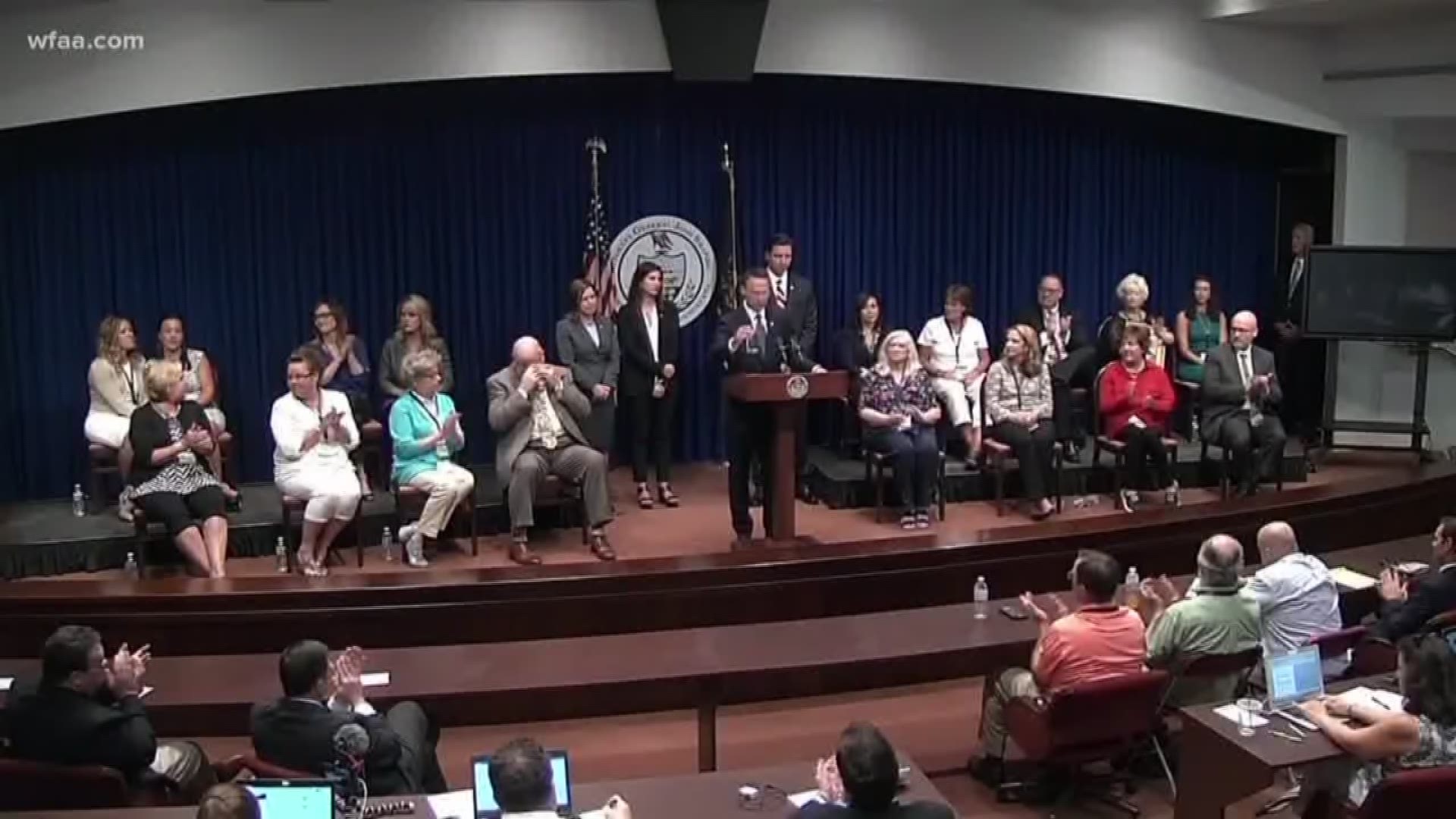FORT WORTH – It was a difficult summer for Catholics. In July, Cardinal Theodore McCarrick resigned after being accused of multiple incidents of sexual abuse. In August, a Pennsylvania grand jury identified more than 300 predator priests who they say abused more than 1,000 victims over a 70-year span.
“I have felt, sick, I felt angry and I felt a new resolve to do our part,” said Bishop Michael F. Olson of the Diocese of Fort Worth.
Before scandal rocked the Catholic church nationwide, Olson had his diocese were already working on a plan to better protect parishioners. “The reality is that this very sinful, dangerous aspect of society is present among us,” he said. “So we must lead. Complacency is the chief enemy of a safe environment.”
While trainings have been underway since July, on September 1, the diocese of Fort Worth will roll out a new educational and training program called Protecting God’s Children. The diocese already had a program in place, but this is more robust, said Richard Mathews, director of safe environment.
The training sessions that have already been held required discussion among the volunteers and ministers who took part, which in itself was a good thing, Mathews said, because it forced people to talk. “That’s one of the reasons this scourge of child sexual abuse has been able to last as long as it has,” he said, “because nobody wanted to talk about it.”
The Diocese of Dallas also has set programming in place and Protecting God’s Children is part of the plan they use as well.
Mathews said Protecting God’s Children provides concrete steps that apply to everyone in the diocese. It is a bit more stringent than previous programs which allowed volunteers to renew their certifications through video applications. Face to face training is required every two years instead of every three.
The main themes of the program are:
- Knowing the warning signs of problematic behavior.
- Controlling access to children and parishioners through screenings such as face-to-face interviews and background checks for every minister or volunteer.
- Closely monitoring all ministries and programs, so that any anomalies are noticed.
- Knowing the children well enough to spot behavior changes and ensure they feel comfortable coming reporting concerns.
- Ensuring all parishioners know they should communicate any concerns.
- There will also be programming for children in Catholic schools, so they learn what sexual abuse is and who to talk to if something happens.
“When an allegation of sexual abuse of a child or a minor is made, we immediately call the police,” Olson said. “We call criminal authorities, and we rely on their expertise to help us determine credibility.”
“I see a renewed sense of intolerance with this sort of behavior and also the condoning and enabling of this criminal behavior, and I think that in itself is hopeful,” Olson said.

